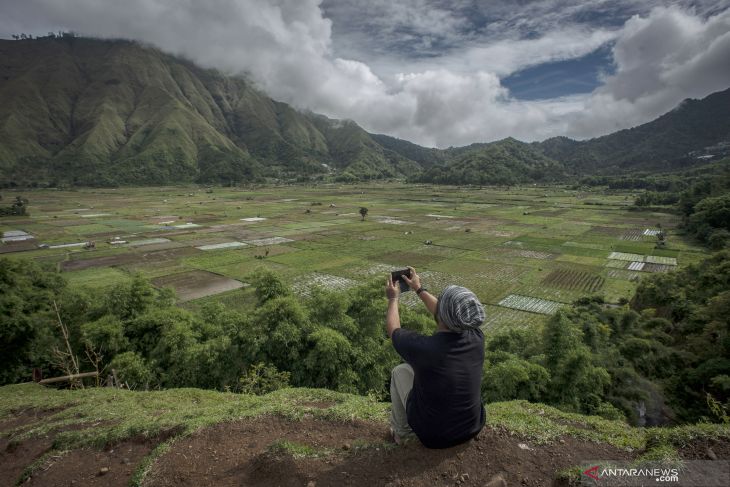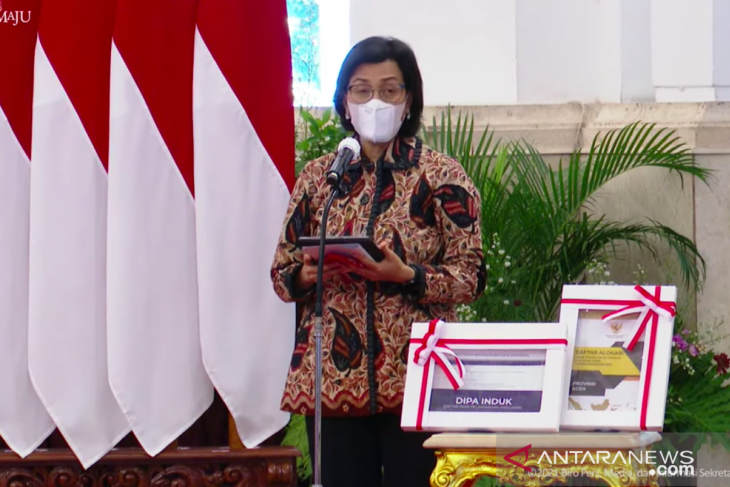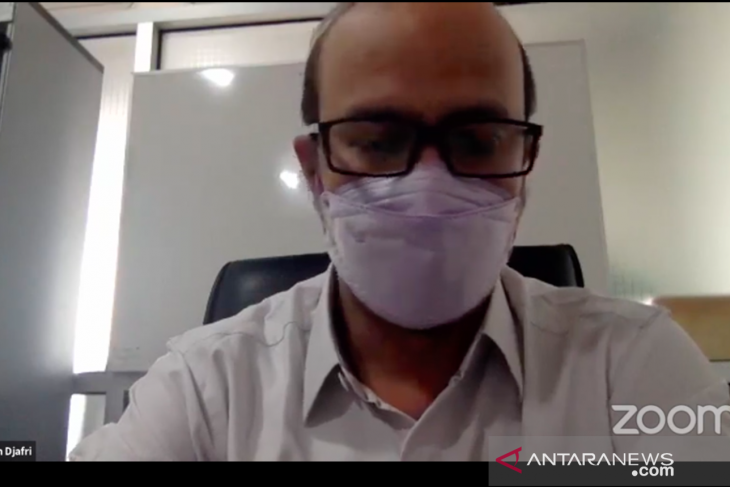Streaming
Program Highlight
Company Profile
November
Mt Rinjani closed until March 2022
Written by Nur Yasmin
The Mount Rinjani trekking route in Lombok, West Nusa Tenggara, will be closed from November 29, 2021 to March 31, 2022 due to extreme weather to ensure visitors' safety.
"The closure will be effective from November 29, 2021 to March 31, 2022 to anticipate high rainfall," Head of the Mount Rinjani National Park (TNGR) Dedy Asriady stated here on Tuesday.
The trekking routes include the Jeruk Manis waterfall in Jeruk Manis Village, Sikur Sub-district; the Mayung Polak waterfall path in Timbanuh Village, Peringgasela Sub-district; and the Mangku Sakti waterfall route via Sajang Village in Sembalun Sub-district, East Lombok District.
The routes from Sambik Elen Village in Bayan Sub-district, North Lombok District, will also be temporarily closed.
"Four TNGR trekking routes are temporarily closed and will reopen in April 2022," Asriady remarked.
The TNGR head appealed to residents and tourists to adhere to the rules until the reopening of the climbing route.
"The TNGR area has been closed during the rainy season for the safety of climbers," Asriady stated. (Antaranews)
November
Minister: Economic recovery to be accompanied by new risks
Written by Nur Yasmin
Indonesia's economic recovery in 2022 will be accompanied by the emergence of new risks, such as commodity price volatility in global markets, inflationary pressures that could have an impact on rising interest rates, and geopolitical dynamics, according to Finance Minister Sri Mulyani Indrawati.
The new risks must be managed so as not to disrupt the pace of economic recovery and structural reforms, she said at the State Palace, here on Monday during the submission of the budget execution lists (DIPA) and the list of transfer allocations to regions and village funds in 2022.
"The economic recovery in 2022 will be accompanied by the emergence of new risks that must be managed, such as commodity price volatility; inflationary pressures and the implications of rising interest rates in developed countries, especially the United States; China's economic rebalancing; as well as supply chain disruptions and geopolitical dynamics," she said.
According to Indrawati, global and domestic economic recovery in 2022 will still remain uneven and uncertain. This is mainly due to the dynamics of the COVID-19 pandemic, which continues to be overshadowed by the emergence of new variants of the coronavirus, such as the B.1.1.529, or Omicron, variant.
She expected that the handling of the spread of the COVID-19, which proved effective some time ago, could be a strategy for Indonesia to prevent the transmission of new variants. This must be accompanied by the acceleration of COVID-19 vaccinations to create community immunity so that economic activities can resume, she added.
"The success of the Indonesian government in controlling the Delta variant and maintaining vigilance and discipline in health protocols is expected to be a strong provision in dealing with the new threat of the new Omicron variant," the Finance Minister said.
Regarding the 2022 State Budget (APBN), she emphasized that the government's fiscal instruments are still expansive and accommodate counter-cyclical policies, but still pay attention to risks, and prioritize fiscal sustainability in the medium and long term.
The government is targeting a State Budget deficit of 4.85 percent of the gross domestic product, or Rp868 trillion, in 2022, she noted. The deficit is narrower compared to the 2021 outlook of 5.2–5.4 percent of the GDP.
The APBN deficit will result from the ceiling on state revenue of Rp1,846.1 trillion and state expenditure of Rp2,714.2 trillion, she said. With this fiscal posture, the government is targeting economic growth of 5.2 percent in 2022, compared to the outlook for 2021, which is pegged at 3.5–4 percent. (Antaranews)
November
Makarim: Hope Gernas BBI will become well-known globally
Written by Nur Yasmin
Education, Culture, Research, and Technology Minister Nadiem Anwar Makarim has expressed the hope that the Proud of Indonesian Products National Movement (Gernas BBI) of Flavor of Maluku will become well-known globally.
“Through Gernas BBI, we will bring the Flavor of Maluku to also be popular in other continents,” he remarked at the main event of Gernas BBI in Ambon city, Maluku province on Monday.
According to records written by Portuguese sailors in the 16th century, the Maluku Islands were called Spice Islands, he noted.
Furthermore, woven fabrics from Maluku were worn at the Miss World event, he said. Recently, Ambon city has been designated as a City of Music by the United Nations Educational, Scientific and Cultural Organization (UNESCO), he added.
The assets and cultural heritages owned by the province can provide potential opportunities to improve the people’s welfare, the minister said.
He urged all parties to collaborate and transform together—which is also the focus of the Freedom in Learning program to eliminate barriers in the education, cultural, and economy sectors.
“In fact, the sectors have huge influences. Quality education can generate creative graduates who are able to manage existing resources to improve the welfare of the community,” he said.
Furthermore, a prosperous community can get more opportunities to receive quality education, he added.
Thus, the Gernas BBI initiative emphasizes even and sustainable economic advancement, he said.
“We are committed to establishing and strengthening the collaboration of education, business, and industry sectors,” Makarim added.
This has been realized in the Vocational School of Center of Excellence as well as Freedom in Learning in Vocational Schools and Colleges/Universities, he said.
In addition, there is the Kedaireka platform, a Rp1.1-trillion collaboration among education and industry sectors to strengthen the research ecosystem and encourage the down-streaming of student innovation, he added.
“Eliminate the barriers by using digital technology transformation. Since 2019, we have used digital technology in the procurement of services and equipment for the education sector through School Procurement Information System (SipLah),” the minister noted.
The system serves as a marketplace that assists schools in buying learning equipment using operational assistance funds disbursed by the government, he said.
Indonesian micro, small, and medium enterprises (MSMEs) are being given opportunities to be providers of services and equipment, he added.
One million transactions worth Rp12.6 trillion have taken place so far through SipLah, Makarim added. (Antaranews)
November
Expert: Omicron variant spreads quickly, need to up vigilance
Written by Nur Yasmin
As the Omicron or B.1.1.529 coronavirus variant spreads more rapidly, Indonesia must increase vigilance to prevent the variant from entering the country, an epidemiologist from Andalas University has informed.
"The Omicron variant transmits quicker and is able to spread among fully vaccinated people," Defriman Djafri remarked when contacted by Antara here on Monday.
Djafri, who is also the chairman of the Indonesian Epidemiologist Association, West Sumatra, pointed out that Omicron is a heavily mutated variant, which can cause it to breach the protection of vaccines.
The WHO (World Health Organization) has declared the Omicron variant as a "variant of concern" (VoC) while it is still deepening research on how the variant transmits and why it infects people more easily, he noted.
The Variant of Concern status is given to a coronavirus variant that increases the risk of transmission and mortality, he explained. Even more, a coronavirus variant that falls into this category has a capacity to badly impact vaccine efficacy, he said.
According to Djafri, although the cause is still unclear, positive cases of the new variant are continuing to rise in South Africa. However, he added, the severity of the Omicron variant has not been determined yet.
Based on initial data, some degree of severity has been reported with increasing hospitalizations reported in South Africa, he said. Compared to other variants such as Delta, the infection is more severe, he noted.
However, Djafri said the reported symptoms of Omicron are no different from other variants. Nevertheless, early infection occurs in college students or young people who tend to have milder symptoms than others, he informed.
Based on data from GISAID, South Africa, Botswana, Hong Kong, Australia, Israel, Italy, Canada, and the United Kingdom have reported cases of Omicron variant, he said. The Omicron variant was first reported by South Africa to the WHO in November 2021, he added.
Djafri then stressed that vigilance and monitoring in Indonesia must be strengthened to quickly detect any cases of the new variant.
Whole-genome sequencing should be done immediately to detect the virus variant, he said. Only through whole-genome sequencing can the new variant be detected in Indonesia, he added.
He then advised the public to continue to follow strict health protocols, saying the authorities must pursue COVID-19 vaccinations. (Antaranews)


